- Home
- Roald Dahl
Matilda Page 3
Matilda Read online
Page 3
'There it is,' Fred said. 'It's name is Chopper.'
'Make it talk,' Matilda said.
'You can't make it talk,' Fred said. 'You have to be patient. It'll talk when it feels like it.'
They hung around, waiting. Suddenly the parrot said, 'Hello, hello, hello.' It was exactly like a human voice. Matilda said, 'That's amazing! What else can it say?'
'Rattle my bones!' the parrot said, giving a wonderful imitation of a spooky voice. 'Rattle my bones!'
'He's always saying that,' Fred told her.
'What else can he say?' Matilda asked.
'That's about it,' Fred said. 'But it is pretty marvellous, don't you think?'
'It's fabulous,' Matilda said. 'Will you lend him to me just for one night?'
'No,' Fred said. 'Certainly not.'
'I'll give you all my next week's pocketmoney,' Matilda said.
That was different. Fred thought about it for a few seconds. 'All right, then,' he said, 'if you promise to return him tomorrow.'
Matilda staggered back to her own empty house carrying the tall cage in both hands. There was a large fireplace in the diningroom and she now set about wedging the cage up the chimney and out of sight. This wasn't so easy, but she managed it in the end.
'Hello, hello, hello!' the bird called down to her. 'Hello, hello!'
'Shut up, you nut!' Matilda said, and she went out to wash the soot off her hands.
That evening while the mother, the father, the brother and Matilda were having supper as usual in the living-room in front of the television, a voice came loud and clear from the diningroom across the hall. 'Hello, hello, hello,' it said.
'Harry!' cried the mother, turning white. 'There's someone in the house! I heard a voice!'
'So did I!' the brother said. Matilda jumped up and switched off the telly. 'Ssshh!' she said. 'Listen!'
They all stopped eating and sat there very tense, listening.
'Hello, hello, hello!' came the voice again.
'There it is!' cried the brother.
'It's burglars!' hissed the mother. 'They're in the diningroom!'
'I think they are,' the father said, sitting tight.
'Then go and catch them, Harry!' hissed the mother. 'Go out and collar them redhanded!'
The father didn't move. He seemed in no hurry to dash off and be a hero. His face had turned grey.
'Get on with it!' hissed the mother. 'They're probably after the silver!'
The husband wiped his lips nervously with his napkin. 'Why don't we all go and look together?' he said.
'Come on, then,' the brother said. 'Come on, Mum.'
'They're definitely in the diningroom,' Matilda whispered. 'I'm sure they are.'
The mother grabbed a poker from the fireplace. The father took a golf-club that was standing in the corner. The brother seized a table-lamp, ripping the plug out of its socket. Matilda took the knife she had been eating with, and all four of them crept towards the diningroom door, the father keeping well behind the others.
'Hello, hello, hello,' came the voice again.
'Come on!' Matilda cried and she burst into the room, brandishing her knife. 'Stick 'em up!' she yelled. 'We've caught you!' The others followed her, waving their weapons. Then they stopped. They stared around the room. There was no one there.
'There's no one here,' the father said, greatly relieved.
'I heard him, Harry!' the mother shrieked, still quaking. 'I distinctly heard his voice! So did you!'
'I'm certain I heard him!' Matilda cried. 'He's in here somewhere!' She began searching behind the sofa and behind the curtains.
Then came the voice once again, soft and spooky this time, 'Rattle my bones,' it said. 'Rattle my bones.'
They all jumped, including Matilda, who was a pretty good actress. They stared round the room. There was still no one there.
'It's a ghost,' Matilda said.
'Heaven help us!' cried the mother, clutching her husband round the neck.
'I know it's a ghost!' Matilda said. 'I've heard it here before! This room is haunted! I thought you knew that.'
'Save us!' the mother screamed, almost throttling her husband.
'I'm getting out of here,' the father said, greyer than ever now. They all fled, slamming the door behind them.
The next afternoon, Matilda managed to get a rather sooty and grumpy parrot down from the chimney and out of the house without being seen. She carried it through the back-door and ran with it all the way to Fred's house.
'Did it behave itself?' Fred asked her.
'We had a lovely time with it,' Matilda said. 'My parents adored it.'
Arithmetic
Matilda longed for her parents to be good and loving and understanding and honourable and intelligent. The fact that they were none of these things was something she had to put up with. It was not easy to do so. But the new game she had invented of punishing one or both of them each time they were beastly to her made her life more or less bearable.
Being very small and very young, the only power Matilda had over anyone in her family was brain-power. For sheer cleverness she could run rings around them all. But the fact remained that any five-year-old girl in any family was always obliged to do as she was told, however asinine the orders might be. Thus she was always forced to eat her evening meals out of TV dinner-trays in front of the dreaded box. She always had to stay alone on weekday afternoons, and whenever she was told to shut up, she had to shut up.
Her safety-valve, the thing that prevented her from going round the bend, was the fun of devising and dishing out these splendid punishments, and the lovely thing was that they seemed to work, at any rate for short periods. The father in particular became less cocky and unbearable for several days after receiving a dose of Matilda's magic medicine.
The parrot-in-the-chimney affair quite definitely cooled both parents down a lot and for over a week they were comparatively civil to their small daughter. But alas, this couldn't last. The next flare-up came one evening in the sitting-room. Mr Wormwood had just returned from work. Matilda and her brother were sitting quietly on the sofa waiting for their mother to bring in the TV dinners on a tray. The television had not yet been switched on.
In came Mr Wormwood in a loud check suit and a yellow tie. The appalling broad orange-and-green check of the jacket and trousers almost blinded the onlooker. He looked like a low-grade bookmaker dressed up for his daughter's wedding, and he was clearly very pleased with himself this evening. He sat down in an armchair and rubbed his hands together and addressed his son in a loud voice. 'Well, my boy,' he said, 'your father's had a most successful day. He is a lot richer tonight than he was this morning. He has sold no less than five cars, each one at a tidy profit. Sawdust in the gear-boxes, the electric drill on the speedometer cables, a splash of paint here and there and a few other clever little tricks and the idiots were all falling over themselves to buy.'
He fished a bit of paper from his pocket and studied it. 'Listen boy,' he said, addressing the son and ignoring Matilda, 'seeing as you'll be going into this business with me one day, you've got to know how to add up the profits you make at the end of each day Go and get yourself a pad and a pencil and let's see how clever you are.'
The son obediently left the room and returned with the writing materials.
'Write down these figures,' the father said, reading from his bit of paper. 'Car number one was bought by me for two hundred and seventy-eight pounds and sold for one thousand four hundred and twenty-five. Got that?'
The ten-year-old boy wrote the two separate amounts down slowly and carefully.
'Car number two,' the father went on, 'cost me one hundred and eighteen pounds and sold for seven hundred and sixty Got it?'
'Yes, Dad,' the son said. 'I've got that.'
'Car number three cost one hundred and eleven pounds and sold for nine hundred and ninety-nine pounds and fifty pence.'
'Say that again,' the son said. 'How much did it sell for?'
; 'Nine hundred and ninety-nine pounds and fifty pence,' the father said. 'And that, by the way, is another of my nifty little tricks to diddle the customer. Never ask for a big round figure. Always go just below it. Never say one thousand pounds. Always say nine hundred and ninety-nine fifty. It sounds much less but it isn't. Clever, isn't it?'
'Very,' the son said. 'You're brilliant, Dad.'
'Car number four cost eighty-six pounds - a real wreck that was - and sold for six hundred and ninety-nine pounds fifty.'
'Not too fast,' the son said, writing the numbers down. 'Right. I've got it,'
'Car number five cost six hundred and thirty-seven pounds and sold for sixteen hundred and forty-nine fifty. You got all those figures written down, son?'
'Yes, Daddy,' the boy said, crouching over his pad and carefully writing.
'Very well,' the father said. 'Now work out the profit I made on each of the five cars and add up the total. Then you'll be able to tell me how much money your rather brilliant father made altogether today.'
'That's a lot of sums,' the boy said.
'Of course it's a lot of sums,' the father answered. 'But when you're in big business like I am, you've got to be hot stuff at arithmetic. I've practically got a computer inside my head. It took me less than ten minutes to work the whole thing out.'
'You mean you did it in your head, Dad?' the son asked, goggling.
'Well, not exactly,' the father said. 'Nobody could do that. But it didn't take me long. When you're finished, tell me what you think my profit was for the day I've got the final total written down here and I'll tell you if you're right.'
Matilda said quietly, 'Dad, you made exactly four thousand three hundred and three pounds and fifty pence altogether.'
'Don't butt in,' the father said. 'Your brother and I are busy with high finance.'
'But Dad ...'
'Shut up,' the father said. 'Stop guessing and trying to be clever.'
'Look at your answer, Dad,' Matilda said gently 'If you've done it right it ought to be four thousand three hundred and three pounds and fifty pence. Is that what you've got, Dad?'
The father glanced down at the paper in his hand. He seemed to stiffen. He became very quiet. There was a silence. Then he said, 'Say that again.'
'Four thousand three hundred and three pounds fifty,' Matilda said.
There was another silence. The father's face was beginning to go dark red.
'I'm sure it's right,' Matilda said.
'You ... you little cheat!' the father suddenly shouted, pointing at her with his finger. 'You looked at my bit of paper! You read it off from what I've got written here!'
'Daddy, I'm the other side of the room,' Matilda said. 'How could I possibly see it?'
'Don't give me that rubbish!' the father shouted. 'Of course you looked! You must have looked! No one in the world could give the right answer just like that, especially a girl! You're a little cheat, madam, that's what you are! A cheat and a liar!'
At that point, the mother came in carrying a large tray on which were the four suppers. This time it was fish and chips which Mrs Wormwood had picked up in the fish and chip shop on her way home from bingo. It seemed that bingo afternoons left her so exhausted both physically and emotionally that she never had enough energy left to cook an evening meal. So if it wasn't TV dinners it had to be fish and chips. 'What are you looking so red in the face about, Harry?' she said as she put the tray down on the coffee-table.
'Your daughter's a cheat and a liar,' the father said, taking his plate of fish and placing it on his knees. 'Turn the telly on and let's not have any more talk.'
The Platinum-blond man
There was no doubt in Matilda's mind that this latest display of foulness by her father deserved severe punishment, and as she sat eating her awful fried fish and fried chips and ignoring the television, her brain went to work on various possibilities. By the time she went up to bed her mind was made up.
The next morning she got up early and went into the bathroom and locked the door. As we already know, Mrs Wormwood's hair was dyed a brilliant platinum blonde, very much the same glistening silvery colour as a female tightrope-walker's tights in a circus. The big dyeing job was done twice a year at the hairdresser's, but every month or so in between, Mrs Wormwood used to freshen it up by giving it a rinse in the washbasin with something called PLATINUM BLONDE HAIR-DYE EXTRA STRONG. This also served to dye the nasty brown hairs that kept growing from the roots underneath. The bottle of PLATINUM BLONDE HAIR-DYE EXTRA STRONG was kept in the cupboard in the bathroom, and underneath the title on the label were written the words Caution, this is peroxide. Keep away from children. Matilda had read it many times with fascination.
Matilda's father had a fine crop of black hair which he parted in the middle and of which he was exceedingly proud. 'Good strong hair,' he was fond of saying, 'means there's a good strong brain underneath.'
'Like Shakespeare,' Matilda had once said to him.
'Like who?'
'Shakespeare, Daddy,'
'Was he brainy?'
'Very, Daddy,'
'He had masses of hair, did he?'
'He was bald, Daddy'
To which the father had snapped, 'If you can't talk sense then shut up.'
Anyway, Mr Wormwood kept his hair looking bright and strong, or so he thought, by rubbing into it every morning large quantities of a lotion called OIL OF VIOLETS HAIR TONIC. A bottle of this smelly purple mixture always stood on the shelf above the sink in the bathroom alongside all the toothbrushes, and a very vigorous scalp massage with OIL OF VIOLETS took place daily after shaving was completed. This hair and scalp massage was always accompanied by loud masculine grunts and heavy breathing and gasps of 'Ahhh, that's better! That's the stuff! Rub it right into the roots!' which could be clearly heard by Matilda in her bedroom across the corridor.
Now, in the early morning privacy of the bathroom, Matilda unscrewed the cap of her father's OIL OF VIOLETS and tipped three-quarters of the contents down the drain. Then she filled the bottle up with her mother's PLATINUM BLONDE HAIR-DYE EXTRA STRONG. She carefully left enough of her father's original hair tonic in the bottle so that when she gave it a good shake the whole thing still looked reasonably purple. She then replaced the bottle on the shelf above the sink, taking care to put her mother's bottle back in the cupboard. So far so good.
At breakfast time Matilda sat quietly at the dining-room table eating her cornflakes. Her brother sat opposite her with his back to the door devouring hunks of bread smothered with a mixture of peanut-butter and strawberry jam. The mother was just out of sight around the corner in the kitchen making Mr Wormwood's breakfast which always had to be two fried eggs on fried bread with three pork sausages and three strips of bacon and some fried tomatoes.
At this point Mr Wormwood came noisily into the room. He was incapable of entering any room quietly, especially at breakfast time. He always had to make his appearance felt immediately by creating a lot of noise and clatter. One could almost hear him saying, 'It's me! Here I come, the great man himself, the master of the house, the wage-earner, the one who makes it possible for all the rest of you to live so well! Notice me and pay your respects!'
On this occasion he strode in and slapped his son on the back and shouted, 'Well, my boy, your father feels he's in for another great money-making day today at the garage! I've got a few little beauties I'm going to flog to the idiots this morning. Where's my breakfast?'
'It's coming, treasure,' Mrs Wormwood called from the kitchen.
Matilda kept her face bent low over her cornflakes. She didn't dare look up. In the first place she wasn't at all sure what she was going to see. And secondly, if she did see what she thought she was going to see, she wouldn't trust herself to keep a straight face. The son was looking directly ahead out of the window stuffing himself with bread and peanut-butter and strawberry jam.
The father was just moving round to sit at the head of the table when the mother came sweeping out from t
he kitchen carrying a huge plate piled high with eggs and sausages and bacon and tomatoes. She looked up. She caught sight of her husband. She stopped dead. Then she let out a scream that seemed to lift her right up into the air and she dropped the plate with a crash and a splash on to the floor. Everyone jumped, including Mr Wormwood.
'What the heck's the matter with you, woman?' he shouted. 'Look at the mess you've made on the carpet!'
'Your hair!' the mother was shrieking, pointing a quivering finger at her husband. 'Look at your hair!' What've you done to your hair?'
'What's wrong with my hair, for heaven's sake?' he said.
'Oh my gawd, Dad, what've you done to your hair?' the son shouted.
A splendid noisy scene was building up nicely in the breakfast room.
Matilda said nothing. She simply sat there admiring the wonderful effect of her own handiwork. Mr Wormwood's fine crop of black hair was now a dirty silver, the colour this time of a tightrope-walker's tights that had not been washed for the entire circus season.
'You've ... you've ... you've dyed it!' shrieked the mother. 'Why did you do it, you fool! It looks absolutely frightful! It looks horrendous! You look like a freak!'
'What the blazes are you all talking about?' the father yelled, putting both hands to his hair. 'I most certainly have not dyed it! What d'you mean I've dyed it? What's happened to it? Or is this some sort of a stupid joke?' His face was turning pale green, the colour of sour apples.
'You must have dyed it, Dad,' the son said. 'It's the same colour as Mum's only much dirtier-looking.'
'Of course he's dyed it!' the mother cried. 'It can't change colour all by itself! What on earth were you trying to do, make yourself look handsome or something? You look like someone's grandmother gone wrong!'
'Get me a mirror!' the father yelled. 'Don't just stand there shrieking at me! Get me a mirror!'
The mother's handbag lay on a chair at the other end of the table. She opened the bag and got out a powder compact that had a small round mirror on the inside of the lid. She opened the compact and handed it to her husband. He grabbed it and held it before his face and in doing so spilled most of the powder all over the front of his fancy tweed jacket.

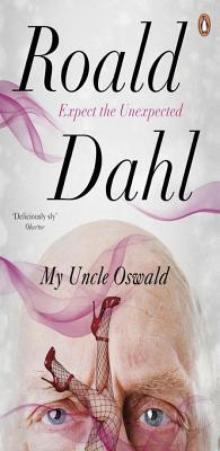 My Uncle Oswald
My Uncle Oswald The Best of Roald Dahl
The Best of Roald Dahl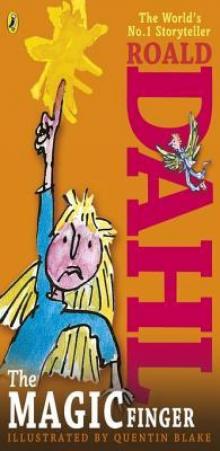 The Magic Finger
The Magic Finger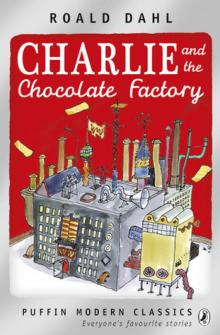 Charlie and the Chocolate Factory
Charlie and the Chocolate Factory Fantastic Mr Fox
Fantastic Mr Fox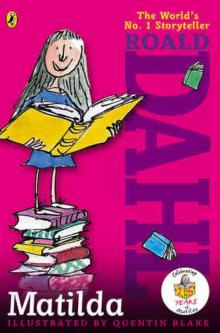 Matilda
Matilda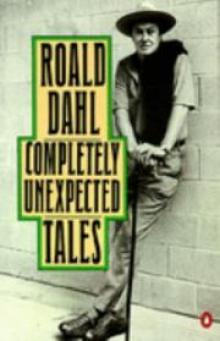 Completely Unexpected Tales: Tales of the Unexpected. More Tales of the Unexpected
Completely Unexpected Tales: Tales of the Unexpected. More Tales of the Unexpected The Wonderful Story of Henry Sugar and Six More
The Wonderful Story of Henry Sugar and Six More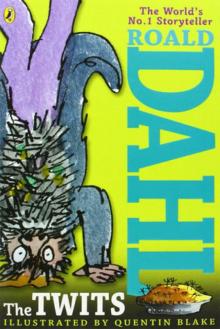 The Twits
The Twits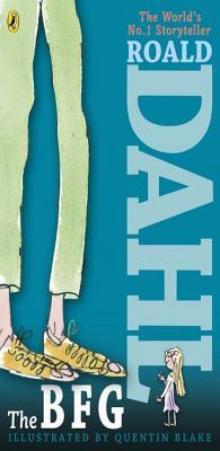 The BFG
The BFG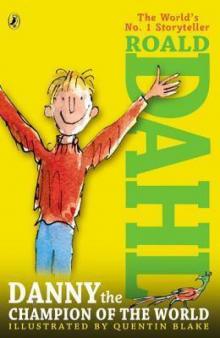 Danny the Champion of the World
Danny the Champion of the World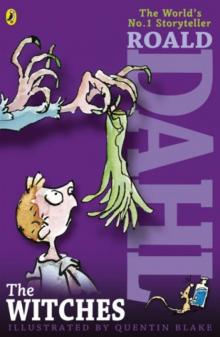 The Witches
The Witches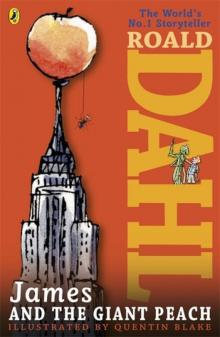 James and the Giant Peach
James and the Giant Peach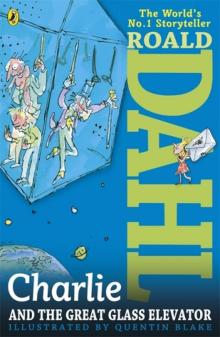 Charlie and the Great Glass Elevator
Charlie and the Great Glass Elevator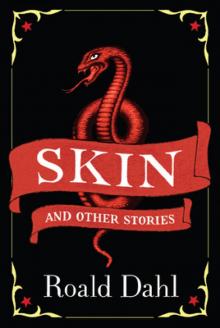 Skin and Other Stories
Skin and Other Stories Kiss Kiss
Kiss Kiss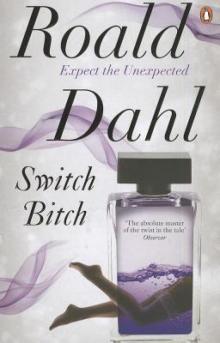 Switch Bitch
Switch Bitch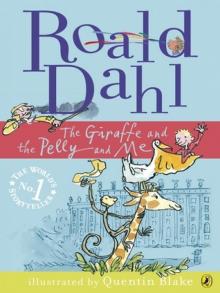 The Giraffe and the Pelly and Me
The Giraffe and the Pelly and Me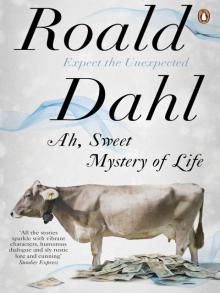 Ah, Sweet Mystery of Life
Ah, Sweet Mystery of Life Fear
Fear The Great Automatic Grammatizator and Other Stories
The Great Automatic Grammatizator and Other Stories Someone Like You
Someone Like You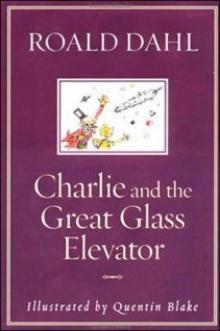 Charlie and the Great Glass Elevator c-2
Charlie and the Great Glass Elevator c-2 More About Boy
More About Boy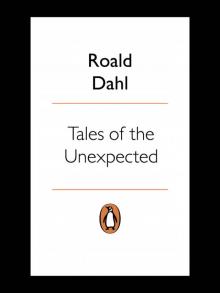 Tales of the Unexpected
Tales of the Unexpected The Umbrella Man and Other Stories
The Umbrella Man and Other Stories Dirty Beasts
Dirty Beasts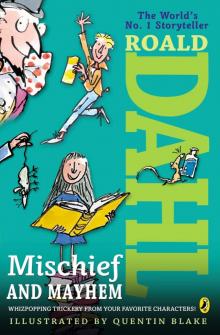 Roald Dahl's Mischief and Mayhem
Roald Dahl's Mischief and Mayhem The Collected Short Stories of Roald Dahl, Volume 1
The Collected Short Stories of Roald Dahl, Volume 1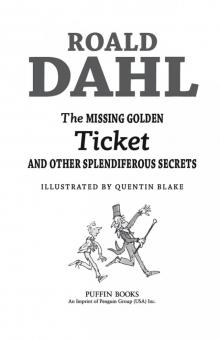 The Missing Golden Ticket and Other Splendiferous Secrets
The Missing Golden Ticket and Other Splendiferous Secrets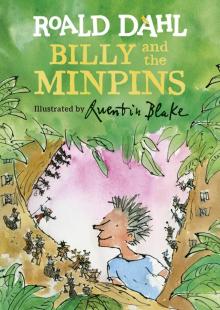 Billy and the Minpins
Billy and the Minpins Over to You
Over to You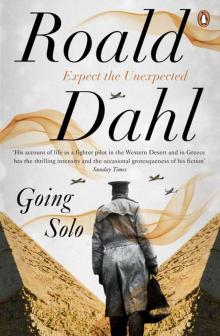 Going Solo
Going Solo Deception
Deception War
War Man from the South ee-3
Man from the South ee-3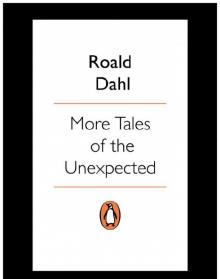 More Tales of the Unexpected
More Tales of the Unexpected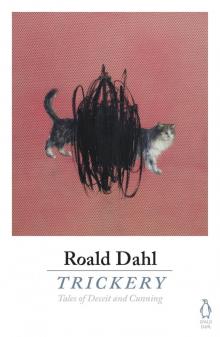 Trickery
Trickery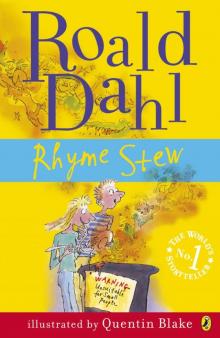 Rhyme Stew
Rhyme Stew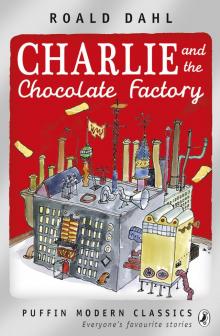 Charlie and the Chocolate Factory (Puffin Modern Classics relaunch)
Charlie and the Chocolate Factory (Puffin Modern Classics relaunch)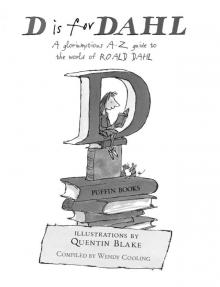 D is for Dahl
D is for Dahl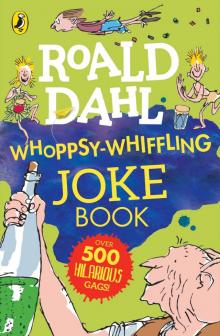 Roald Dahl Whoppsy-Whiffling Joke Book
Roald Dahl Whoppsy-Whiffling Joke Book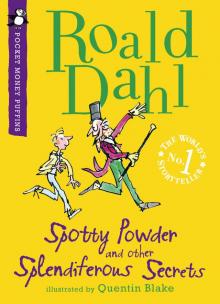 Spotty Powder and other Splendiferous Secrets
Spotty Powder and other Splendiferous Secrets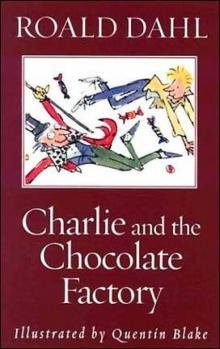 Charlie and the Chocolate Factory c-1
Charlie and the Chocolate Factory c-1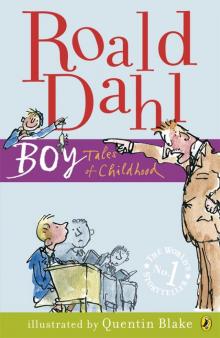 Boy
Boy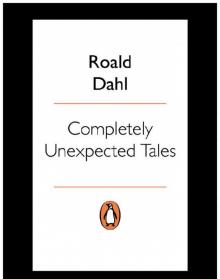 Completely Unexpected Tales
Completely Unexpected Tales Madness
Madness Innocence
Innocence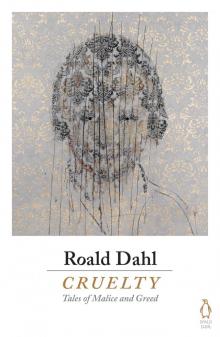 Cruelty
Cruelty George's Marvellous Medicine
George's Marvellous Medicine